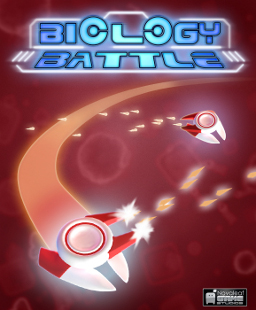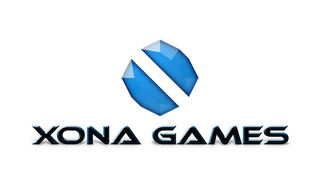Related Research Articles

Microsoft XNA is a freeware set of tools with a managed runtime environment that Microsoft Gaming developed to facilitate video game development. XNA is based on .NET Framework, with versions that run on Windows and Xbox 360. XNA Game Studio can help develop XNA games. The XNA toolset was announced on March 24, 2004, at the Game Developers Conference in San Jose, California. A first Community Technology Preview of XNA Build was released on March 14, 2006.
The Xbox network, formerly known as Xbox LIVE, is an online multiplayer gaming and digital media delivery service created and operated by Microsoft Gaming for the Xbox brand. It was first made available to the original Xbox console on November 15, 2002. An updated version of the service became available for the Xbox 360 console at the system's launch in November 2005, and a further enhanced version was released in 2013 with the Xbox One. This same version is also used with Xbox Series X and Series S. This service, in addition to a Microsoft account, is the account for Xbox ecosystem; accounts can store games and other content.
Xbox Live Arcade (XBLA) is a video game digital distribution service available through the Xbox Games Store, Microsoft's digital sales platform for the Xbox 360. It focused on smaller downloadable games from both major publishers and independent game developers. Titles ranged from classic console and arcade video games, to new games designed from the ground up for the service. Games available through the XBLA service ranged from $5–20 in price, and as of October 2016, there have been 719 Xbox Live Arcade titles released for the Xbox 360. Prior to the Xbox 360, "Xbox Live Arcade" was the name for an online distribution network on the original Xbox, which was replaced by the Xbox Live Marketplace.
Xbox Games Store is a digital distribution platform currently used by Microsoft's Xbox 360 video game console and formerly by the Xbox One. The service allows users to download or purchase video games, add-ons for existing games, game demos along with other miscellaneous content such as gamer pictures and Dashboard themes.

Games for Windows – Live or GFWL was an online gaming service used by Games for Windows–branded PC titles that enables Windows PCs to connect to Microsoft's Live service. Users, each with a unique Gamertag, are able to play online, keep track of their friends' status, send and receive messages, gain and keep track of Achievements and associated Gamerscore, voice chat across platforms, and more. Some games allow for cross-platform play, such as Shadowrun, putting Windows players against Xbox 360 players.
Games for Windows is a discontinued brand owned by Microsoft and introduced in 2006 to coincide with the release of the Windows Vista operating system. The brand itself represents a standardized technical certification program and online service for Windows games, bringing a measure of regulation to the PC game market in much the same way that console manufacturers regulate their platforms. The branding program was open to both first-party and third-party publishers.
The Xbox 360 is a home video game console developed by Microsoft. As the successor to the original Xbox, it is the second console in the Xbox series. It competed with Sony's PlayStation 3 and Nintendo's Wii as part of the seventh generation of video game consoles. It was officially unveiled on MTV on May 12, 2005, with detailed launch and game information announced later that month at the 2005 Electronic Entertainment Expo (E3).
Ska Studios is an independent game development studio founded by James Silva in 2007 after winning a contract to publish The Dishwasher: Dead Samurai to Xbox Live Arcade. Ska Studios has released four Metacritic-aggregated console games since then, more than any similarly sized studio. Ska Studios currently consists of James Silva.
Xbox Avatars are avatars and characters that represent users of the Xbox network service on the Xbox 360, Xbox One, and Xbox Series X and Series S video game consoles, Windows 10, and Windows 10 Mobile. Avatars originally debuted on the Xbox 360 as part of the "New Xbox Experience" system update released on November 19, 2008, updated on Xbox One with "New Xbox One Experience" Xbox One System Software on November 12, 2015, and reimagined with the release of the next generation character for Xbox One on October 11, 2018.

Biology Battle is a multidirectional shooter for the Xbox 360 and Microsoft Windows. It is a dual-stick shooter with elements similar to Robotron: 2084, Smash TV, and Geometry Wars.
Twisted Pixel Games, LLC is an American video game developer based in Austin, Texas. Originally a contractor, Twisted Pixel releases games based on its own intellectual properties such as The Maw and 'Splosion Man. The company uses its own proprietary engine, known as Beard, to power its games. On October 12, 2011, it was announced that Twisted Pixel had become part of Microsoft Studios. However, Twisted Pixel separated from Microsoft, and became an independent company again on September 30, 2015. In November 2021, the company became a subsidiary of Oculus Studios.

I Made a Game with Zombies in It!, is a zombie-themed multidirectional shooter video game for the Xbox 360, available through the Xbox Live Indie Games service. Released in 2009, it was developed by Ska Studios and was designed entirely by company founder James Silva, previously best known for the Xbox Live Arcade game The Dishwasher: Dead Samurai. The game was developed using Microsoft XNA, though its tongue-in-cheek description claims it was made using "Hypermagic Engine 3.0 and the Megacore X parallelization processor." The game's title makes excessive comic usage of features of Internet writing, such as leetspeak, overuse of exclamation marks, and typographical errors. It has since been re-launched through Steam in November 2021 and through Xbox Store in October 2022, and is currently still available for download.

CarneyVale: Showtime is a vertical platformer developed by Singapore-MIT GAMBIT Game Lab and published by Microsoft Game Studios. It was initially released on Xbox Live Indie Games on Xbox 360. Players play as Slinky, "a circus acrobat trying to rise up the ranks by performing acrobatic tricks and death-defying stunts through increasingly complex arenas".

Pinball FX 2 is a pinball video game for Xbox 360, Xbox One, and Microsoft Windows and is the sequel to Pinball FX. It was developed by Zen Studios and published by Microsoft Studios. It was released on October 27, 2010, via the Xbox Live Arcade service. The game includes several new features, such as local multiplayer and the ability to tweak table settings. Players can also import all of the tables from Pinball FX they had previously purchased. The Windows 8 version of Pinball FX 2 was released on the Windows Store on October 27, 2012, two years after the original XBLA release. The game was subsequently released for other Windows platforms via Steam on May 10, 2013. Pinball FX 2 was announced for Windows Phone in February 2012. A sequel, Pinball FX 3 was released in September 2017.

Microsoft XNA Game Studio is a discontinued integrated development environment (IDE) for building video games on the Microsoft XNA platform. Such video games can run on Xbox 360, Microsoft Windows, Windows Phone and the Zune. XNA Game Studio is targeted at hobbyists and experienced programmers, and is primarily used to develop 2D and 3D video games for various Microsoft platforms. XNA games can be published for the Xbox 360 using an XNA Creator's Club membership, that has a yearly fee.

The Adventures of Shuggy is a puzzle-platform game developed by British studio Smudged Cat Games and published by Valcon Games. It was released June 15, 2011 for the Xbox 360 via Xbox Live Arcade, for Microsoft Windows on June 13, 2012, and for Linux and OS X on October 30, 2015. It follows the vampire Shuggy as he seeks to rid his newly inherited mansion of its undesirable inhabitants.

Honor in Vengeance II is a 3D space shooter by American developer MichaelArts. It was released for Xbox Live Indie Games on August 5, 2011. The game follows the story of a Martian pilot named Leo Lucas, who is tasked with finding the remnants of a recon team that vanished near Earth.
The Indie Games Uprising is a developer led event designed to promote the "best of the best" Xbox Live Indie Games. The promotion was originally conceived by Robert Boyd of Zeboyd Games and Ian Stocker of MagicalTimeBean, when they noticed that they both had games coming out in the same time frame.

Solar 2 is an open world sandbox video game developed by Australian developer Jay Watts' video game studio, Murudai. It was released on 17 June 2011 on Steam for Microsoft Windows and on 19 June 2011 on Xbox Live Indie Games for the Xbox 360. The game was developed with Microsoft's XNA tools, and its development was inspired by indie games such as flOw. The game follows the player in their mission to accumulate enough mass to become several astronomical objects, eventually becoming a Big Crunch, which then produces a Big Bang.

Xona Games is an independent Canadian video game developer founded in 2008 and headquartered in Yarmouth, Nova Scotia, Canada.
References
- ↑ "Indie Games" . Retrieved November 8, 2014.
- 1 2 Hawkins, Dax (February 22, 2008). "Sponsored Feature: Democratizing Game Distribution: The Next Step". Gamasutra . Retrieved June 8, 2009.
- ↑ Martin, Matt (May 20, 2008). "Microsoft: User created games will help us leapfrog WiiWare and PSN". Games Industry. Retrieved June 8, 2009.
- 1 2 Martin, Matt (May 20, 2008). "Xbox Live Arcade's David Edery". Games Industry. Retrieved June 8, 2009.
- ↑ Martin, Matt (May 21, 2008). "Microsoft kicks off Xbox Live Community Games beta". Games Industry. Retrieved June 8, 2009.
- ↑ Nutt, Christian (October 31, 2008). "Hands-On: Xbox Live Community Games Make Splash In San Fran". Gamasutra . Retrieved June 8, 2009.
- ↑ "XNA Game Studio 3.1 is here!". Microsoft. June 11, 2009. Archived from the original on June 15, 2009. Retrieved June 11, 2009.
- ↑ Valjalo, David (November 2, 2010). "Indie Game Devs Concerned By 360 Dashboard Changes". Edge . Retrieved December 20, 2010.
- 1 2 Alexander, Leigh (November 9, 2010). "Microsoft Addresses Indie Concerns, XBL Indie Games Back in the Games Section". Gamasutra . Retrieved December 20, 2010.
- ↑ Dutton, Fred (November 2, 2010). "Microsoft: new 360 dash helps indies". Eurogamer . Retrieved December 20, 2010.
- ↑ Hinkle, David (September 17, 2012). "CastleMiner Z cracks one million, still fastest-selling XBLIG". Joystiq . Retrieved September 17, 2012.
- ↑ Dutton, Fred (January 4, 2012). "Microsoft increases XBLIG game size limit". Eurogamer . Archived from the original on February 7, 2020. Retrieved January 4, 2012.
- 1 2 3 XNA Game Studio Developer Education. "Happy New Year, Xbox LIVE Indie Games!". Microsoft Developer Network Blogs. Archived from the original on January 8, 2012. Retrieved January 4, 2012.
- 1 2 3 "XNA Creators Club Online FAQ". Microsoft. Archived from the original on April 28, 2009. Retrieved June 8, 2009.
- ↑ "Trial Mode Increasing From Four Minutes to Eight Minutes". Microsoft. December 19, 2008. Archived from the original on April 29, 2009. Retrieved June 8, 2009.
- 1 2 Hawkins, Dax (November 5, 2008). "Sponsored Feature: Xbox Live Indie Games". Gamasutra . Retrieved June 8, 2009.
- 1 2 Alexander, Leigh (June 11, 2009). "XNACG Renames To Xbox Live Indie Games, Adding User Ratings To XBLA, Add-Ons". Gamasutra . Retrieved June 11, 2009.
- ↑ Langley, Ryan (March 30, 2009). "XBLA: GamerBytes Analysis: XNA Community Games Sales Data Revealed". Gamer Bytes. Archived from the original on August 12, 2010. Retrieved June 9, 2009.
- ↑ Klepek, Patrick (July 22, 2008). "Microsoft Shows How To Make Money With 'Community Games'". MTV. Retrieved June 8, 2009.
- ↑ Kee, Tameka (March 30, 2009). "paidContent.org – The Harsh Economics For Indie Game Developers". Washington Post. Retrieved June 8, 2009.
- ↑ "Download History Now Available!". Microsoft. March 28, 2009. Archived from the original on March 31, 2009. Retrieved June 8, 2009.
- 1 2 Carless, Simon (December 28, 2008). "Interview: Novaleaf's Swearingen Talks Injecting Biology Battle Onto XNA Community Games". Gamasutra . Retrieved June 8, 2009.
- ↑ Nelson, Jared. "Upcoming 'Techno Kitten Adventure' – File Under W for "WTF?!"".
- ↑ "Xbox Live Indie Games: no way to make a living". Ars Technica. July 2011. Retrieved July 15, 2011.
So, no, chances are you won't be able to quit your day job by releasing a game on XBLIG. And, yes, virtually all of the developers we spoke to are considering moving on from the platform.
- ↑ Rose, Mike (July 19, 2011). "Steam Revenue For Zeboyd Games RPGs Outpaces Lifetime Xbox Mark In 6 Days". Gamasutra . Retrieved July 19, 2011.
- ↑ "Summer Uprising". XBLIG: Summer Uprising.
- ↑ "XBLIG Tribute". Indie Games Uprising.
- ↑ Nutt, Christian (September 9, 2015). "Microsoft shutting down Xbox Live Indie Games program". Gamasutra . UBM plc . Retrieved September 9, 2015.
- ↑ Moyse, Chris (September 12, 2017). "Xbox Live Indie Games closes at the end of the month". Desctructoid . Retrieved September 28, 2017.
- 1 2 Hood, Vic (September 29, 2017). "Xbox Live Indie Games gets stay of execution". Eurogamer . Retrieved September 29, 2017.